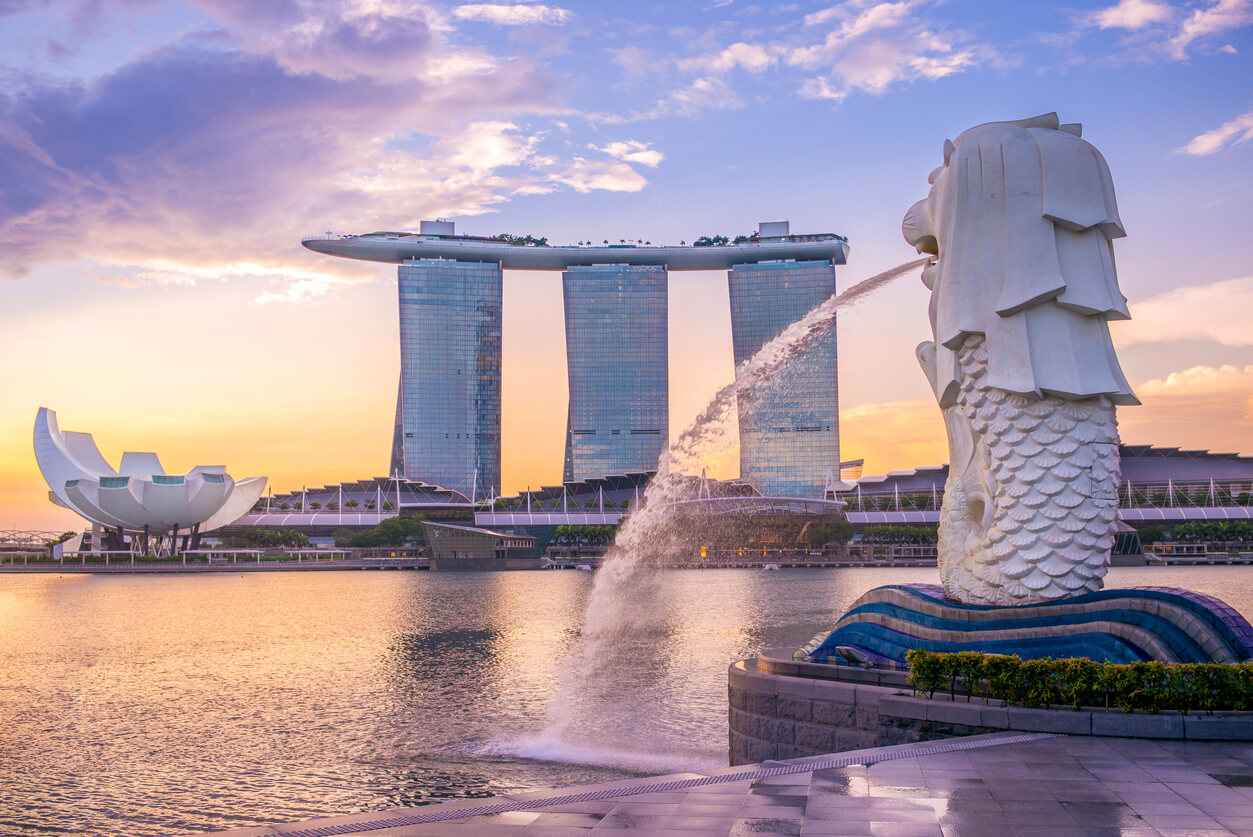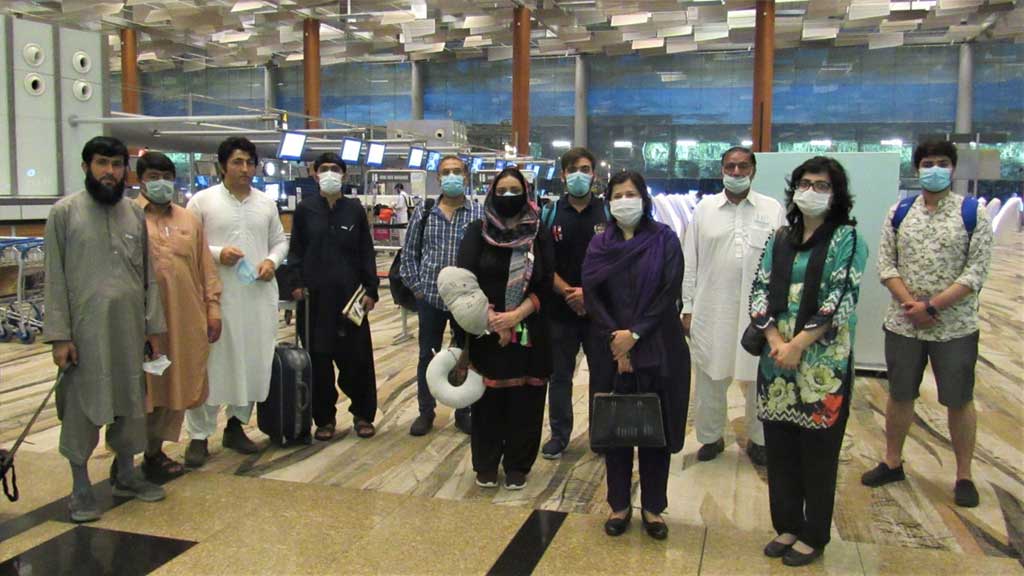The first thing that comes to mind when thinking about Singapore is the skyscrapers, beautiful beaches, gardens, and cleanliness. This is all true, but there is a lot behind this modern city-state.
As the global economic powerhouse of Southeast Asia, it is the hub of prosperity, innovation, and strategic business investment. All of its beautiful architecture, clean roads, and beaches are the result of the government’s commitment and foreign investment income.
The question will arise as to how Singapore relies on foreign investments. The answer lies in their economic landscape and strategies. As an island nation of 5.5 million people, their GDP (PPP) of 2022 stands at a staggering $551,614 billion. This ranks Singapore as the 34th in the world in the highest per capita GDP at $82,808.
All of this comes from foreign investments, well, mostly. Over 50% of Singapore’s GDP originates from foreign investments like biomedical sciences, financial services and technology, oil and energy, tech and innovation, along with real estate and construction.
Apart from these investments and growth, the government also offers tax breaks and incentives to foreign investors. Which greatly benefits both sides.
In the end, Singapore became the country that we see today, all because of its innovative business strategies and how it utilize its foreign investments. Today, we are going to look at the Investment Opportunities in Singapore. So, let’s dive into it.
Key Sectors for Foreign Investment Opportunities in Singapore
Singapore has a diverse investment sector. The business strategy is to embrace all forms of modern infrastructure and development. This includes oil and energy industries, technology and innovation, financial services and fintech, real estate and property development, and lastly, infrastructure and urban development.
If you are wondering how much FDI (Foreign Direct Investment) Singapore receives, the number for 2022 reached a record-breaking $195 billion. This number is increasing every year and through all the aforementioned sectors.
Here is a chart of all the sectors in Singapore that got foreign investment in the year of 2022:
| Industry | Total FDI | Key Investors | Departments | Oil and Energy | S$12.6 billion (US$9.2 billion) | ExxonMobil, Shell, Chevron, TotalEnergies, Sinopec, PetroChina | Oil trading, refining, storage, bunkering, petrochemicals |
|---|---|---|---|
| Technology and Innovation | S$24.2 billion (US$17.7 billion) | Google, Facebook, Microsoft, Amazon, Alibaba, Tencent | Artificial intelligence, cybersecurity, fintech, healthcare, digital media |
| Financial Services and Fintech | S$19.3 billion (US$14.2 billion) | Citibank, HSBC, JPMorgan Chase, Bank of America, Standard Chartered, DBS Bank | Asset management, wealth management, insurance, blockchain technologies, digital payments |
| Real Estate and Property Development | S$48.2 billion (US$35.3 billion) | Blackstone, GIC, Temasek, CapitaLand, Lendlease, Mapletree | Commercial real estate, industrial parks, residential projects, integrated resort |
| Infrastructure and Urban Development | S$18.7 billion (US$13.8 billion) | Siemens, Mitsubishi, Samsung, ABB, Keppel Infrastructure, Ascendas Singbridge | Smart city initiatives, sustainable transportation, renewable energy projects, water management |
Chart: Foreign Direct Investment (FDI) in Singapore’s Key Industries
To give you more insight into all the sectors, we are going to start with the Oil and energy industry. The most profitable sector for foreign investment at this moment.
Oil and Energy Industry Overview
Singapore is the world’s largest oil trading center. Believe it or not, it surpasses the oil trading center in Rotterdam and Houston by volume. Almost 21% of the world’s oil trade goes through Singapore annually.
This is due to its strategic geographical location, making it the crossroads of major shipping routes and ports.

Apart from being the middle point of the oil trade, the country’s political stability, strong legal system, and strong financial infrastructure add up to a haven for oil traders. Numerous companies like Exxon Mobil, Shell, and Total have their regional headquarters in Singapore.
There are also some specific reasons why Singapore is the hub of the oil trade. So let’s look into the reason and the countries that rely solely on the country for their oil trade.
Singapore as a Hub for Oil Trading and Services
Being an Island nation, Singapore is surrounded by sea. Having Indonesia and Malaysia by its side, the Southeast Asian country roughly has an area of 734.3 km².
This might seem too little, but with its meticulous planning and development, Singapore turned its small area into the hub of oil trading. Not only does it handle the trading of crude oil, but it also has a refinery and other oil services.
As the US has sanctions, Singapore plays as the middleman for the oil trade for Iran, Iraq, and Egypt. This involves the movement, financing, and security of the oil products. At the same time, Singapore helps this oil to reach the global market without any difficulty.
The highly skilled workforce with years of practical experience (since 1891), strategic location, and political stability play a vital role in the oil trade.
This also raises the question of how Singapore manages the oil, stores, and refines it. We will discuss that in the next section.
Infrastructure for Oil Storage and Refining
Although Singapore does not have its own oil reserves, its world-class refining and storing capacity puts it at the top of the oil trading chain. With Singapore Refining Company, which is one of the world’s largest oil refinery situated on Jurong Island, the country refines over 5 million barrels per day.
At the same time, the facility can store over 190 million barrels of oil of various types. So, there is a storage of oil ready to ship to the international market when required.
As Singapore sits in a strategic location, the refinery, along with the storage facility, makes it the best trading destination. This cuts down on the costs of logistics and transportation. This is why bigger oil companies have their storage facilities in Singapore, allowing traders to refine and manage inventory efficiently and make better profits.
Though the costs and profits are high, there are some downsides. You need to know the challenges and risks along with the opportunities in the market. Let’s talk about it next.
Challenges and Risks in the Oil Business
Singapore mainly trades and markets crude oil. Think of it as the base of any other oil. It is the unrefined raw material that needs to be processed. Although the country has one of the world’s largest refinery, only a small amount of petrol, gasoline, diesel, and jet fuel comes from it.
Singapore is more focused on the crude oil business. The country stands as the 48th largest crude oil exporter in the world.
As we mentioned, Crude oil needs to be refined into usable products. Making it less demanding sometimes. Still, it is considered the “Black Gold” in the world so anyone can make a fortune out of it.
The main challenge and risk would be the worldwide price volatility. Oil price is famous for fickling from time to time. So, a higher risk management strategy is needed to invest in the oil trade. No matter if it is in Singapore or anywhere else.
Another big issue with investing in oil is the unstable geopolitical situation. Whenever there is an uprise or conflict around the world, oil production and supply get disrupted. Hence, the profit can be threatened.
Lastly, the growing number of environmental awareness has also affected the oil industry in Singapore. This made them invest in more environmentally friendly, sustainable, and cleaner energy technologies.
But for the time being, the renewable energy field is in the developing stage. So, the oil industry is still going to be here for a while. Talking about energy, the technology and innovation sector is also a huge part of Singapore’s investment opportunities. We will have a look at it next.
Technology and Innovation
The second most important sector in Singapore right after the oil industry, is the technology and Innovation sector. As the country thrives on its technological advancements and innovative products, the country has become a hub for IT. The strategic location of the country, business-friendly infrastructure, and government support makes it even more attractive for foreign investors.

Any investor looking for a business opportunity that keeps on growing can definitely look into this sector. Not only does it have a growing ecosystem, but the government initiatives in the program are highly attractive. We should talk more in-depth about it.
Government Initiatives and Support
Singapore’s government has taken initiatives to support the growth of innovation and technology. With its “Smart Nation” program, the country invests in and supports the growth of technological advancement in different fields. This includes healthcare, education, finance, transportation, and other urban developments.
With this program, the public data is open for any organization to use and develop the country in any form. Numerous national projects are open for investment from foreign investors. These include research in technology, science, and healthcare fields, industry and startups, cyber security, and many more.
Foreign investors can apply for the scheme called the Global Investor Programme (GIP) to get the best offers and government support. But what makes the investment worthwhile is tech startups. The ecosystem for startups in Singapore is growing rapidly. So, this needs to be discussed further to understand how it will benefit any business and help it grow.
Tech Start-up Ecosystem
We all know any startup needs to have support and a business-friendly environment to grow. It’s like having a whole ecosystem around it. Singapore boasts the perfect business-friendly tech startup ecosystem.
This is due to the fact that the country believes in innovation and technology that benefits not only the investor but also the country as a whole. The investor-friendly atmosphere added to the regulatory environment to stimulate entrepreneurship and innovation, bringing in more opportunities for foreign investors.
At the same time, the government has top-notch data protection laws so the consumer’s information is always safe, and a trusted circle is built around the tech startup.
While we are talking about tech, we cannot leave the financial services and fintech, which is also a part of it. Let’s look into it for all the financial people who are interested in this field.
Financial Services and Fintech
Financial services and fintech are the most important sectors after any natural resources and technology. For Singapore, it is truer than ever.
As the bustling hub of commerce, the country is packed with banks, insurance, and investment firms. The investments, cash flow, and development go through all of these sectors in financial development.

On the other hand, apart from the physical currency, the crypto market is also growing, and Singapore has a lot of investment opportunities. The growing acceptance worldwide has made cryptocurrency a valuable asset.
To go deep into the financial sector, we have to talk about the banking and fintech sector in detail. So, let’s get on to it.
Banking and Finance Opportunities
Where there is money involved, banking comes into play. All transactions, savings, and investments are carried out through the banking system. At the same time, there are different sectors of banking that foreign investors can look into.
Investment banking and asset management play a role in private equity, venture capital, wealth and investment management, research, and analysis. This sector is mainly responsible for higher stake transfer and investments. The Monitory Authority of Singapore is responsible for regulating the industry.
Commercial and retail banking consists of individual to organizational transactions. Though smaller in size, the industry also handles a significant amount of cash flow. They also provide treasury services and handle funds for both individuals and corporations. Foreign investors prefer their services as they are more flexible and easy.
Growing Fintech Sector
The Fintech Sector is another new finance sector that has been booming in recent times. Singapore’s Fintech industry has grown to become one of the largest in the world currently. For the year 2022, it has seen an investment of more than US$4.1 Billion, which is astounding as the global economy is still trying to recover from the pandemic.
As the function of Fintech is closely related to technology, the outcome is high from the beginning. Investing in this sector will not only bring on profits but also add to the investor’s portfolio as a diversifying income source.
The government also has different initiatives to support the growth of the Fintech investors, which is always a good sign. The overall landscape of the country also aids in the benefits.
Real Estate and Property Investment
If you have lived in a house, anywhere on the planet, rental or owned, you know the value of it. Real estate and property investments are at the top of the investment chain. The downfall of the industry is pretty low, especially if you are talking about Singapore.
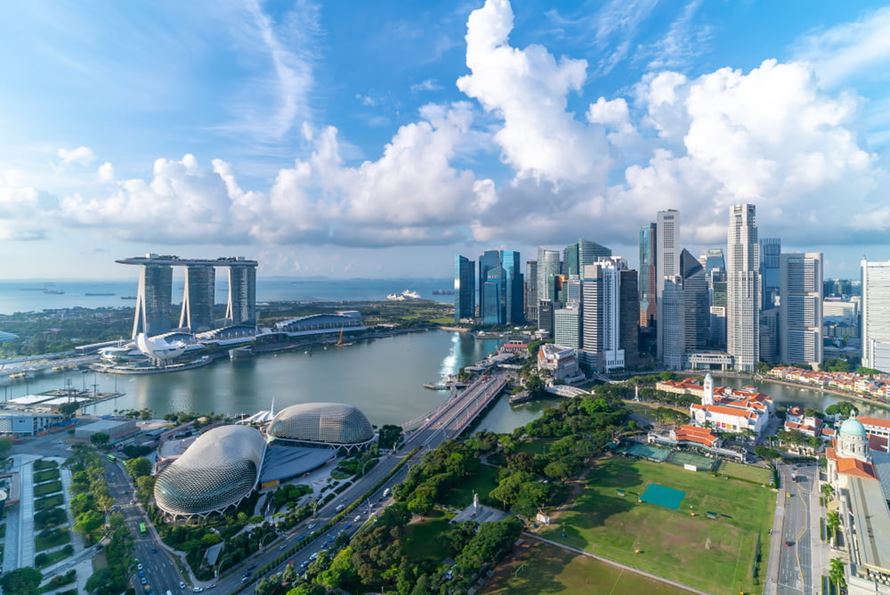
Being an Island nation, the country has minimal land resources. This makes the real estate even more valuable.
But there are some key things to know before you jump right into the investment game. You have to know how the market is currently reacting to residential and commercial spaces. At the same time, there are some rules and regulations to obtain the property in Singapore.
Residential Market Overview
Residential properties are always in demand in the market. This is due to the country being a hub of business and tourism. A huge number of people from around the world not only visit the country but also settle down. Even tourists take longer stays in the country.
The residential market in Singapore is active. Which means the prices are going to be a bit high. However, the government has recently released new GLS (Government Land Sales) projects. This can bring down the price a lot and is the right time to invest in the country.
The country offers luxury condominiums to smaller apartments, which is a great opportunity for investors. The best thing about it is that even foreigners can be owners and investor of residential properties. There are certain rules and regulations that need to be followed, which are easy to understand.
Commercial Real Estate Opportunities
Business is bustling in Singapore. A constantly growing business hub, there is always a need for commercial properties. Offices, retail spaces, industrial properties, and tourism spots are always in demand in the country.
While residential properties are hard to maintain, commercial real estate has lesser maintenance and better outcomes. You get to enjoy higher rents, a stable income source, and diverse sectors and locations to invest in.
The rules and regulations of obtaining and investing in commercial property will differ from residential ones, but it is always worth the time and hassle. After all, it’s real estate we are talking about, and that too in Singapore.
Government Regulations and Opportunities for Foreign Investors
Every country has its own set of rules for investing and obtaining its properties. Singapore is no different from that. The fees, regulations, and restrictions will differ from residential and commercial properties. The investment is also different.
Categorizing the ownership or investment in Singapore Permanent Residence and Non-Permanent Residence, here is what the difference between property investment and ownership looks like:
| What Singapore Permanent Residents can buy | What non-Singapore Permanent Residents can buy |
|---|---|
| Resale HDB flats (can share ownership with another SPR or Singaporean) | Private condos |
| Resale executive condominiums (ECs) that have reached their Minimum Occupation Period (MOP) | Private executive condominiums |
| Privatized executive condominiums | Landed properties in Sentosa Cove |
| Private condos | Landed properties (with special permission from Singapore Land Authority) |
| Strata-landed homes (Homes with lands) | |
| Landed properties in Sentosa Cove | |
| Landed properties (with permission from Singapore Land Authority) |
Opportunities in Infrastructure and Urban Development
Singapore is not the hub for business and commerce for any reason. Its constant urge for development in all sectors has brought it to the height that it stands today. To maintain the development, the government teams up with foreign investors and organizations. This, in return, not only benefits the country but also brings profit to the investors.
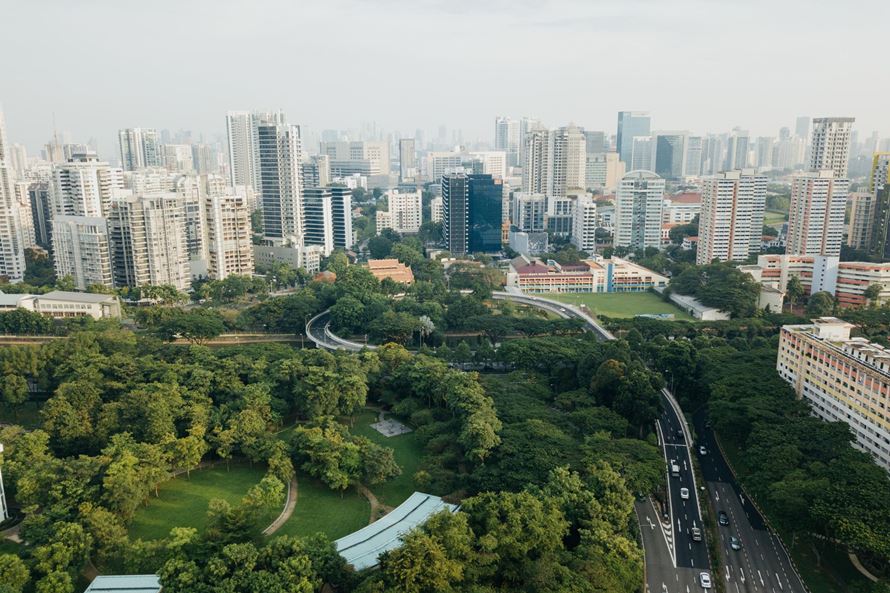
The opportunities that stay open for Infrastructure and Urban Development are public transport, connectivity and communication, sewage and water supply, energy and resources, and sustainable development through smart city initiatives. Let’s look into them in detail, shall we?
Smart City Initiatives and Sustainable Development
Singapore’s latest project, the Smart City Initiative, takes on the future aspect of the country’s development. With integrated technology in transport, traffic management, and public transport, Singapore aims to provide a fluent service for its citizens and residents.
At the same time, the government aims to power citizen services through AI. This includes digital identity solutions, online platforms for interactions, and sensor platforms to get real-time data on air and energy consumption.
The government of Singapore invites foreign investors to work as individuals or as an organization to collaborate and develop their country. In return, the investors get to profit by providing their service.
Transport and Connectivity Projects
Singapore, striving for perfection and development, also aims to develop its transport and connectivity sectors. Although they have a strong track record, the constant need for development is in process.
This includes working on rail, bus, and mobility (cycling and walking paths) networks. Also, there are autonomous vehicles on the streets that are fairly new to the country. Other road constructions like expressways, hubs, and smart traffic management systems are underway.
Seaports are also getting more upgraded infrastructure and digital automation. Changi Airport is getting a well-needed expansion. Both sectors are open for construction, transport, and connectivity projects for investors.
As the country is good in its connectivity sector, the nationwide fiber optic network upgrade is always on the way. At the same time, a 5G network infrastructure is also being built across the country. Investing in any one of these will be a profitable choice.
With all the connectivity, cybersecurity is also a field that needs to be looked into. As Singapore is very strict with its data privacy, this sector is always in demand for investment.
Green Energy and Environmental Sustainability
Singapore is going green by 2030. The project Singapore Green Plan 2030 is one of the biggest investment opportunities to date. This includes massive projects like solar farms, wind power energy sources, geothermal, biomass, and tidal energy projects.
Also, the transport system is getting electric vehicles, which need EV charging stations. Sustainable water management around the country is also on the way. Retrofitting buildings with greenery is also underway on the same project plan.
All of these projects are profitable. Singapore invites foreign investors not to work for one time only but to maintain them throughout the project and lifetime. So investors should look into them.
While every investment requires a bit of benefit and profit, government support is also necessary. Singapore is a country that has all of it. Let’s talk about it in the next section.
Investment Incentives and Government Support
When we talk about business and investment, Singapore will obviously come to mind. There is no doubt that they are one of the leading countries in the world in terms of investment and development at the same time.

This is profitable for both the country and investors due to their business policies and incentives. The Singapore government also supports investors by cutting down on tax grants and establishing supporting agencies for each individual sector.
Here are the attractive incentives and supports an investor can expect in Singapore:
Tax Incentives for Foreign Investors
Singapore has the lowest taxing in investment. This includes not only ASEAN countries but also any other countries of the world. The lowest taxing stands at 17%, making it the most profitable investment for investors.
At the same time, investors in research, manufacturing, or regional development get to have tax exemption on the Pioneer Certificate Incentive (PC) & Development and Expansion Incentive (DEI).
As Singapore is the hub of business and trade, it has a DTAs (Double Tax Agreement) with 80 countries. This means companies or organizations working in multiple countries will not have to pay double taxes.
Grants and Subsidies for Business Expansion
As a truly business-friendly and business-minded country, Singapore also offers various grants to investors. This includes grants to research and development, innovation, skill development, and internationalization efforts.
Investors can apply for government-backed loans that have competitive interest rates. So SMEs can start with ease.
We also mentioned that the government invites investors not only to invest but also to be partners in their development fields. This means co-investment, by the government, being an investor in the business or private venture.
Investment Support from Government Agencies
Singapore caters not only to its tourists as a friendly nation but also to its investors. The EDB (Economic Development Board) works as the investor’s customer service. They provide all the guidance to the investors on the opportunities, incentives, and requirements of the investment.
Singapore Business Federation (SBF) also offers a lot of services and resources to the businesses of all sizes and types.
With all these friendly talks and discussions, the environment also comes into mind. Because a successful investment is half complete with the right environment, let’s look into it in the next section.
Singapore's Business Environment
Singapore is known for its friendly atmosphere and tropical climate. Tourists not only enjoy the country, but also many business organizations share the country as their headquarters.
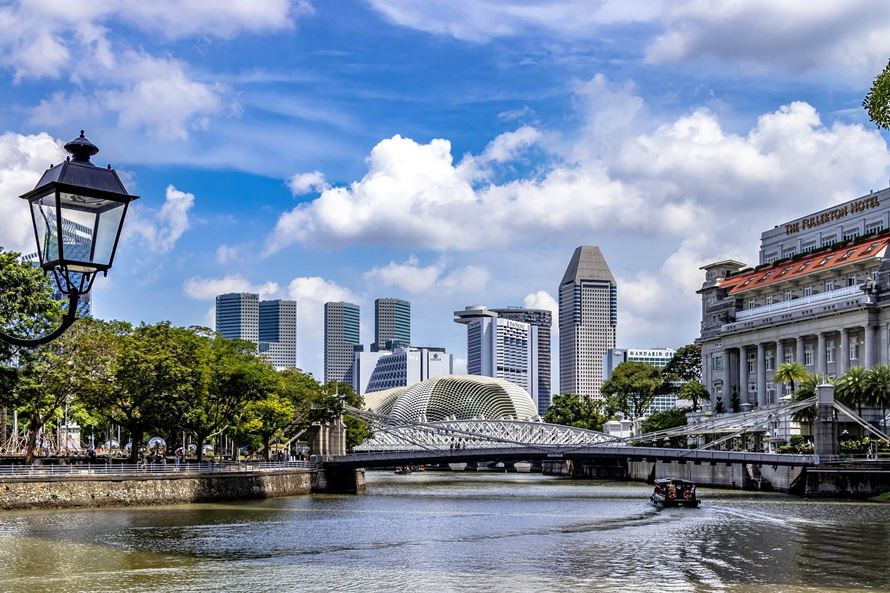
The reason behind it is Singapore’s political stability and strategic geopolitical location. This needs to be discussed a little bit to make it clearer. So, on with it.
Political Stability and Pro-Business Policies
Singapore has a stable political field. This is because of their connections and pro-business mindset. Being an island nation, they provide a middleman service to a lot of nations that are in conflict with one another.
Their pro-business policies give them an upper hand to keep the mutual agreement between nations at ease. Hence, businesses could be developed without any conflict or future harm to the economy, which is ideal for any investor.
Strategic Geopolitical Location
The lion country is located in Southeast Asia. Although it is surrounded by Asian countries like Indonesia, Malaysia, Vietnam, and Cambodia, the country does business with the globe. The sea serves as their main transportation hub.
This makes the cost of movement and shipping a lot easier for any organization. As it is situated with different countries around it, it is easier to access the ASEAN nations so investors can do business not only in Singapore but also with multiple countries at a time.
Also, the government is very helpful towards investors understanding that benefits both sides.
While business investment is a great choice, you should be aware of the challenges and risks you might face. Though it’s a few, we should talk about it.
Challenges and Risks
No investment is without its risks. Though the country has a friendly atmosphere and attitude towards investors, the market competition and global economy cannot be underestimated.

These uncontrollable factors will play a major role that we need to talk about.
Market Competition and Industry Volatility
Any market has competitors, and so does Singapore. No matter which field you are looking to invest in, the competitors will try to move your organization out of track. So it is best you look into the competitors before you start the investment.
Instability is another thing that every investor should keep in mind. This is a factor that keeps on going up and down with the economic situation. As Singapore has high labor rates, it is wise to start small and move on from there.
However, the government has strict regulations and laws that allow all investors to have a level of business ground. So there is very little to worry about competition.
Economic and Global Market Risks
The inconsistent economic and global market environment can put any business at risk. This is not only certain for Singapore but also for the rest of the world.
It is best to cooperate with the SBF and EDB to avoid any harm to the business. With their guidance and updates, investors can enjoy a smooth operation throughout their business.
Visit Singapore to find more Investment Opportunities
Nothing is complete without personally experiencing it. For investment, it is true to the core because researching from a different country to invest in an unknown land might be risky sometimes.
Also, the transaction of the investment involves brokers and lawyers; the site of investment will require the investor to be there in person. Considering all these aspects and the overall understanding of Singapore, it is best to visit and assess the atmosphere by yourself.
After all, the country boasts of tourism, with one of the best airports in the world. A simple visit to Singapore with a tourist visa or eVisa will give you the knowledge you never had before.

This might not only change your heart about investment but also open more opportunities. You know what they say, “Seeing is believing”.
Also, as one of the most important business hubs, a Singapore visa can be applied online with ease. We provide the fastest visa application processing and delivery service. You will get your visa delivered to your email after it is approved.
We process Singapore visas for Tunisia, Russia, Egypt, Uzbekistan, Pakistan along with many other countries. The requirements to apply for a Singapore visa are as follows:
- Your valid passport with six months of validity.
- A passport-sized photograph that was recently taken.
- Your flight booking (we can help you with it).
- Your hotel booking (we can assist you with it).
With above information, you can apply for a Singapore tourist visa or eVisa in just 5 minutes. So, make the trip before you start your dream business in the country.
Conclusion
While business is the best way to live, the market you are going into should be in your favor. As Singapore offers the most for investors with its different schemes and plans, it can be the destination for your next venture. Also, keep in mind that Singapore has a stable political situation and a business-friendly environment, which is crucial for any business. So, if you are looking for a long-term business investment, especially in the oil industry, this is the country to choose your headquarters.
The country has the world’s largest oil refinery and oil storage. This puts it in a higher-ranking business atmosphere and low-risk business position.
As Singapore stands on common grounds, the prospects of getting a sanction from any country are low to none. So you can be an investor without worrying about transport, overcost, and a problematic environment.
Best wishes for you!


